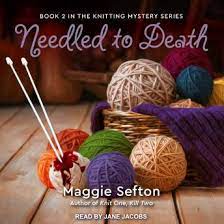It seems I’ve got a schoolboy crush. It’s simple, based on very little and it’s not going to go anywhere. I’m one hundred percent good with that. I just like the fact that, at fifty-seven, this guy can still have such a thing…and pretend the word “schoolboy” has any application to me.
I’ve attended lots of author talks, gone to many writers’ conferences and bought some books on writing, but I’ve avoided classes. I feared them. I didn’t want my writing to be dismissed or mocked. I didn’t want to be overwhelmed by the vastly superior talent in the room. More than anything, I didn’t want irrefutable confirmation that I couldn’t write.
At the beginning of 2022, I decided I needed to shake things up. I wanted something more than a one-shot workshop about writing. I enrolled in an eight-session writing class called Queering the Personal Memoir…or something like that. It’s offered by Hugo House, a wonderful writers’ hub in Seattle. I’d attended a few afternoon workshops there in the past, always looking for an excuse for a road trip to the Emerald City. Pre-COVID, these were led by local authors and attended by local writers and Spice Girl song title folks. A sunny side up result of the pandemic is that, by offerings going online, the faculty and the students come from farther afield. Our instructor is a published author who lives in New York City. We’re a small group of students, but we hail from Seattle, Dallas, Orlando and NYC. Two of us are from Vancouver.
During the first two sessions, I was highly distracted by…myself. I’d participated in many Zoom events but, typically, I was a listener, taking in a performance or an interview with an author. Zoom one-on-ones with a mortgage broker or a psychiatrist were brief. I’d see my image in a rectangle on the screen, but I managed a fair job of fixating on the other person’s tie or the yellow sponge resting on the counter in the background. What kind of person doesn’t put a soggy sponge out of sight? But these writing classes go on for two hours. There are usually nine of us in attendance and I can amuse myself by pretending we’re some queer version of “Hollywood Squares” or the opening title of “The Brady Bunch.” But then I get bogged down remembering that closeted Paul Lynde died of alcoholism and closeted Robert Reed died of AIDS. The distracting images lose their fun factor. I stop visual contortionism and, there I am again, right there in the Jan Brady box, middle child syndrome bubbling up again.
Focus! They’re talking about writing. Something about a braided essay. Or, no, they’ve moved on to discussing the stakes in the work.
I’m paying for this! It seemed a reasonable amount but then there was that conversion to Canadian dollars. I really need to get something out of this.
Still, that face of mine. Disappointing. Frightening. Weary, gaunt, so old. If the Italian mafia, a Mexican cartel or the Norwegian underworld find some need to torture me to confess something, all they’d need to do is sit me in a tiny room and force me to stare at my image. “Okay, okay! That yellow sponge in the background was mine!”
Thankfully, someone told me to put a Post-it over my image. Brilliant! My level of technological problem solving. I have to move the Post-it around as my face appears in different places on screen, I’ve gotten speedy at adjusting. It’s like an office supplies version of Whack-a-mole.
I’m now drawn to another distraction, a more pleasing one: a classmate. My crush. He had me from the moment he logged in that first class. Feast your eyes on that background! The entire wall was filled by a bookcase loaded with books.
And then, of course, there was the figure sitting in front of all those books. A strikingly handsome Black man with closely cropped hair and a starkly serious demeanor that jolted me every time he broke character to flash a smile.
This man is not one of those students who needs to speak every five minutes to process his learning or to show what he knows or thinks he knows. There’s one in every class, right? Actually, in this class, there isn’t. These are genuinely nice people, the kind I’d show up to class early for just to hang and get to know each other more. Especially a certain someone. My crush often holds back, sitting silently as others chime in each week. Then, he takes his moment to offer a sage comment about tweaking the structure of an essay in a simple yet shape-shifting way that makes the writer’s work more polished, more powerful.
Bonus factor: the clothes! Every week he’s appeared in a gloriously stylish cardigan or hooded sweater, something that tells me it’s brr-cold in The Big Apple, something that begs to be touched. Yes, there’s a sunny side down to all this Zoom-i-ness.
This week the class spent the first hour critiquing my 3,000-word essay. My anxiety and insecurity led me to writing eight possible essays to turn in, each sounding more overwrought and woe-is-me. After slogging through one that was a greatest hits medley of All that I Wrong with Me, I’d had enough. Verbal diarrhea and persistent nausea are not the writerly vibes I strive for. I drafted a new essay, this one “lite” and packed with humor…or, at least, what I think is funny. How would the class react? What if my crush held his starkly serious demeanor for the entire two hours? What if he attacked my work? What if he said nothing at all, eyes downcast as he examined Wordles on the phone resting on his lap?
They thought it was funny! Feedback included references to Andrew Sean Greer and the hallowed Nora Ephron. Okay, not with regard to the whole essay but, if someone can cite an Ephron moment, I’m doing an (extremely clumsy) happy dance.
Find yourself a Post-it to block that image.
When my crush chimed in, he smiled. He said, “There were laugh out loud moments on every page.” He cited examples and, by golly, laughed out loud. It wasn’t a throwaway “LOL.” He meant it!
My crush chimed in again later, laughing again, saying he wanted to know more about what I’d referred to as a past partner’s “condom collection.” Well now. This was getting intimate. In truth, there was zero innuendo in his comment, but I prefer to misinterpret as I wish. That’s what crushes are all about. Lots of imagining what could be, even when Be Mine will never be.
Two more sessions to go. We’ll review his essay on the final day. I’ll be unabashedly biased, gushing over his catchy phrasing, his refreshing point of view and how hooked I was from the first paragraph. If it turns out this man can’t write, I’ll sound like a fool. But then that’s how crushes go. I’m such a silly schoolboy. At my age, it feels good.



























